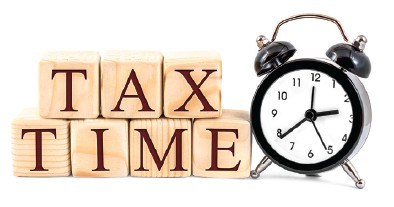The Internal Revenue Service is ready to accept your federal tax returns starting Monday, Jan. 28.
You can file for free electronically through the IRS website or download paper forms. Tax preparation companies such as TurboTax and H&R Block are also filing tax returns to the IRS on behalf of their customers beginning Monday.
The agency recalled all its employees after the government reopened on Friday.
This tax-filing season marks the first since the new tax law that passed in December 2017. The most significant changes are the increased standard deduction, the doubling of the child tax credit and the $10,000 cap on the state and local tax deduction.
The government shutdown, the longest-ever at 35 days, also had raised questions about the agency’s operations during tax season. To deal with the lapse in needed funding, the IRS had planned to limit telephone service and shutter taxpayer assistance centers where walk-ins could get in-person help with their taxes.
It’s unclear if and how those plans have changed. The agency typically issues a news release on the first day the filing season opens, but there was none yet Monday morning.
Other key tax dates
You have until Monday, April 15, to file your 2018 taxes. Taxpayers in the District of Columbia, Maine and Massachusetts have until April 17 to file their returns because of local holidays.
Here are other important tax dates:
January 31, 2019: Deadline for employers to mail out W-2 forms and for businesses to send 1099 statements.
March 15, 2019: Tax returns for LLCs and S-corporations are due.
April 15, 2019: This is the last day you can file your taxes electronically or postmark your paper taxes.
Get ready
Collect documents: Print out a tax checklist from the IRS, TurboTax or H&R Block. Collect and file necessary tax documents like your W-2s from your employers and 1099s from your bank. Gather receipts as proof of charitable contributions, if needed.
Take out old returns: Use last year’s tax return to help you remember what credits and deductions you claimed. This can help you identify key life events that could affect your taxes, such as marriage, divorce, a home purchase, a new baby or retirement.
Anticipate changes: Use TurboTax’s TaxCaster or H&R Block’s free income tax calculator to estimate your tax situation post-tax reform law. If you need to lower your 2018 taxable income, you can fund an IRA until April 15.

